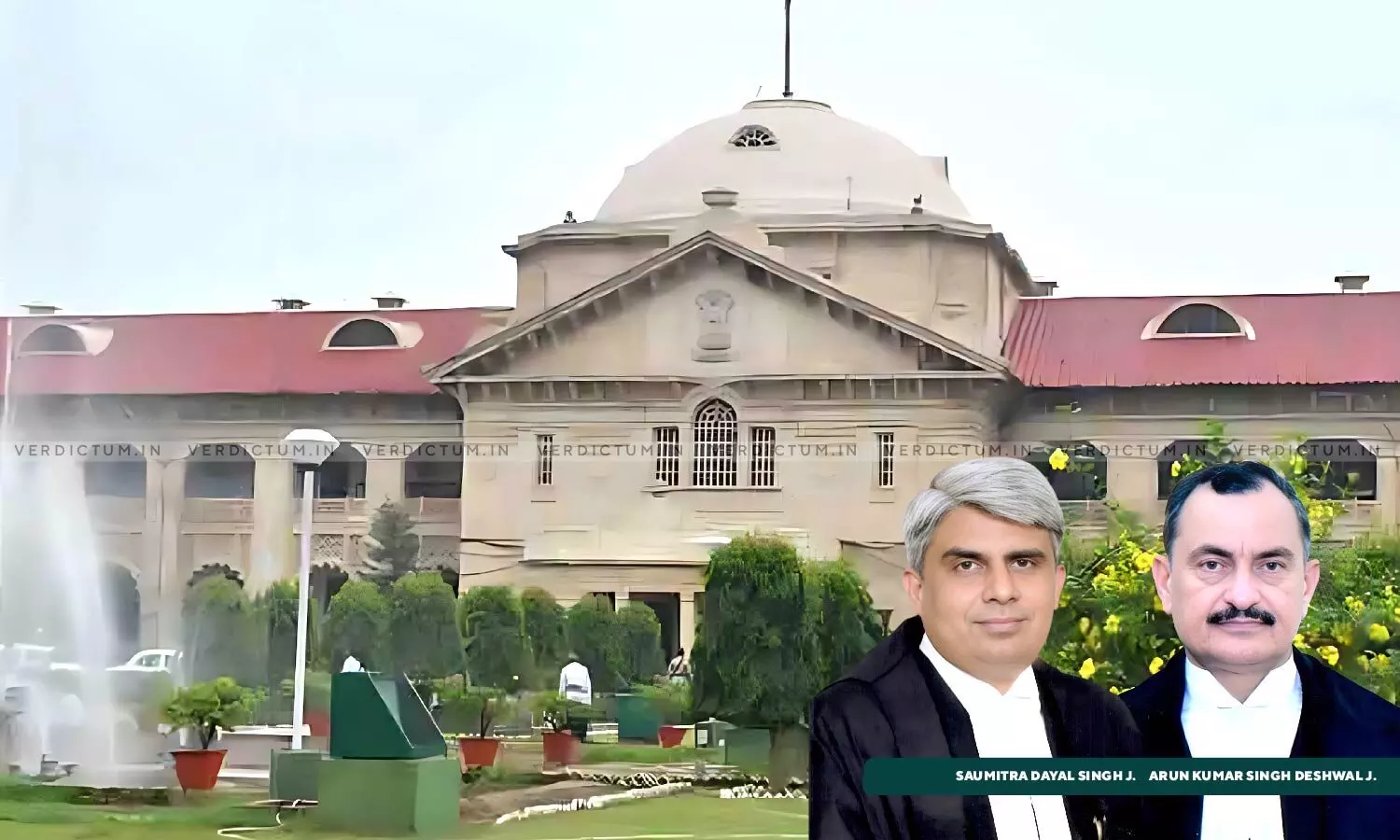
Forcing Couple To Live Together More Prejudicial To Public Interest Than Dissolution Of Marriage: Allahabad HC Grants Divorce Citing Cruelty By Wife, Grants Permanent Alimony Of 1 Crore
 |
|The Allahabad High Court dissolved a marriage between the parties holding that despite the absence of direct proof of cruelty in their day-to-day life, the wife's actions, including filing false criminal cases and continuous legal disputes, constituted cruelty. The appellant-husband, filed an appeal against the order of the Additional Principal Judge, Family Court. The initial divorce petition had been filed by the husband under Section 13(1) of the Hindu Marriage Act, 1955. The marriage between the parties had taken place in 2002. The husband had initially obtained an ex parte divorce decree in 2016, but the wife filed a recall application, which was allowed. Subsequently, the divorce petition was restored, and both parties presented their respective cases before the court.
A Division Bench of Justice Saumitra Dayal Singh and Justice Arun Kumar Singh Deshwal held, “The above facts clearly establish that both parties have lodged criminal cases against each other and have serious disputes about the properties. Apart from this, both parties are also making allegations against each other of having relationship outside of marriage, therefore, forcing them to live together despite their intense hate towards each other will amount to cruelty.”
Advocate Ankit Srivastava appeared for the Appellant.
The husband’s counsel argued that the wife had filed false criminal cases against him, including charges under Sections 498A, 420, and 377 IPC. These accusations were deemed false, and the husband was acquitted in the related cases. The husband contended that these false complaints and other legal disputes led to mental agony and constituted cruelty. He also claimed that both parties had been living separately since 2014 and that there was no chance of reconciliation due to the bitterness created by these legal battles.
The Court evaluated the evidence presented by both parties. It noted that while the husband had not explicitly proven cruelty in their day-to-day life, the wife's actions, including filing false criminal cases and continuous legal disputes, constituted cruelty. The Court said, “it is clear that though the appellant could not clearly establish the cruelty on the part of the respondent till filing a divorce petition in their day-to-day life, this fact is also undisputed that the respondent had lodged one case under Sections-498A, 420 506 and 507 IPC in 2014, before the filing of the divorce petition by the appellant. In that case, though police had filed a chargesheet under Section-420 IPC and Section-498A IPC was deleted and subsequently the competent Court also acquitted the appellant under Section-420 IPC. Similarly, in Case Crime No.17 of 2018, under Section-377 IPC which respondent though lodged during the pendency of the divorce petition, the police had submitted a closure report.”
The Court referenced legal precedents, including the case of Naveen Kohli Vs Neelu Kohli, 2006 (4) SCC 558 to establish that filing false complaints against a spouse amounted to cruelty.
The Court observed, “In the present case, both the parties have levelled allegation against each other for not maintaining the sanctity of marriage and their involvement in relationship outside of marriage and they have been living separately for more than ten years and number of complaints including the criminal complaints have been filed by the respondent against the appellant and every effort has been made to harass and torture him. Appellant had also filed a case against the respondent. Even, at this stage, respondent is not ready for any conciliation with the appellant.” The Court concluded that forcing the parties to live together would be detrimental. The Court, therefore, dissolved the marriage, citing both the cruelty suffered by the husband and the irretrievable breakdown of the marriage.
The Court thus directed the husband to pay Rs.1,00,00,000/- (One Crore) to the wife as permanent alimony within three months. In case of delayed payment, an interest rate of 6% per annum would be applicable from the date of the judgment until the date of payment.
The Court allowed the husband's appeal, setting aside the lower court's order, and dissolved the marriage based on the grounds of cruelty suffered by the husband and the irretrievable breakdown of the marriage.
Cause Title: Ashok Jha v. Pratibha Jha, [2023:AHC:198706-DB]
Click here to read/download Order